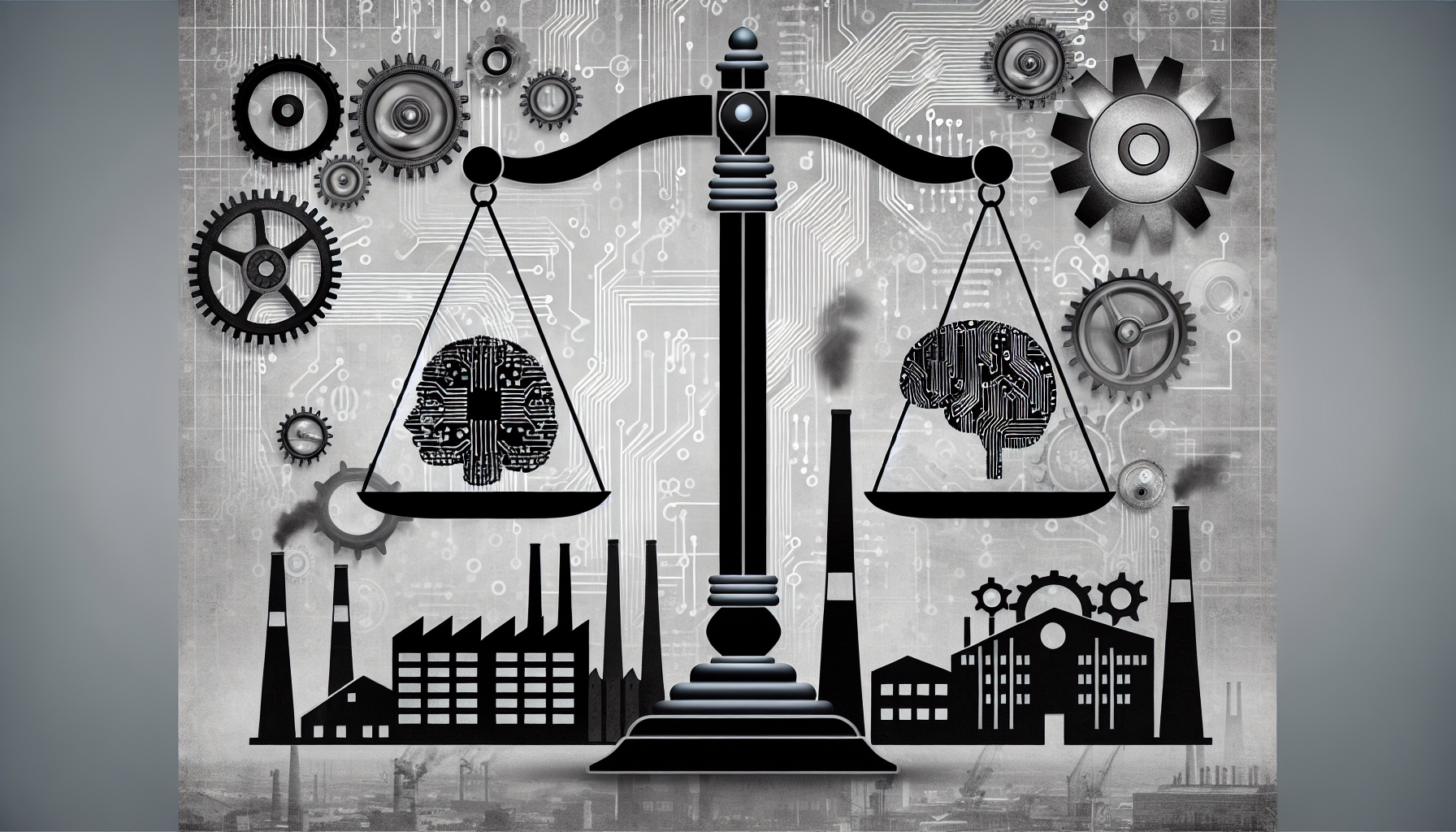The Ethical Considerations of AI in Industry Applications
Understanding AI in the Industrial Context
Artificial Intelligence (AI) systems are revolutionizing industries by enhancing decision-making, optimizing operational efficiency, and improving customer engagements. However, along with these advantages, various ethical implications arise that require thoughtful consideration from stakeholders, including businesses, policymakers, and consumers.
Data Privacy and Security
One of the primary ethical concerns related to AI in industry applications centers around data privacy. With the ability of AI to analyze vast amounts of data, particularly personal data, industries must navigate complex privacy regulations, such as the General Data Protection Regulation (GDPR) in Europe. The collection and use of personal data necessitate transparent data policies and robust security measures. Organizations should ensure that they have explicit consent from users before collecting their data and that they implement strong encryption and anonymization techniques to safeguard sensitive information.
Transparency and Accountability
AI decision-making often resembles a “black box,” where the inner workings of algorithms can be opaque to users. This lack of transparency poses ethical concerns regarding accountability. If an AI system makes an erroneous or biased decision (e.g., in hiring or loan approvals), it becomes challenging to trace accountability back to the responsible parties. Industries must prioritize developing explainable AI systems that can provide insights into how decisions are made. This openness not only fosters trust among users but also encourages companies to take responsibility for the impact of their AI systems.
Bias and Fairness
The risk of bias in AI systems is another critical ethical consideration. AI models are trained on historical data, which may contain inherent biases reflecting societal inequalities. For instance, biases in recruitment algorithms can disproportionately affect marginalized groups. It is essential that organizations actively assess and mitigate these biases through diverse training data and regular audits to ensure fairness. Implementing strategies such as bias identification and correction techniques can help create more equitable AI applications and promote inclusivity in industry practices.
Employment and Labor Dynamics
As AI systems automate various tasks, there are significant ethical concerns regarding the impact on employment. The displacement of workers due to automation poses questions about the future of labor and the ethical obligation of companies to engage in responsible transitions. Organizations should consider retraining programs and upskilling initiatives that prepare employees for the AI-enhanced landscape. Moreover, fostering a culture of collaboration between human workers and AI systems can help in maximizing the benefits of automation while minimizing negative impacts on employment.
Intellectual Property Rights
AI-generated content raises numerous ethical questions surrounding intellectual property (IP) rights. The challenge lies in attributing authorship and ownership of works created by AI. When AI systems produce creative outputs, such as artwork or music, it becomes ambiguous whether the AI, the developer, or the end-user holds the rights. Organizations must navigate IP laws carefully, establishing clear guidelines that define ownership and ensure credit is given to human creators whenever relevant, promoting a fair approach to content generation.
Environmental Impact
The environmental implications of AI require careful ethical scrutiny, particularly related to energy consumption associated with AI training and operation. Large AI models demand substantial computational resources, leading to increased carbon footprints. Industry players should strive to balance innovation with sustainability by prioritizing energy-efficient models, investing in greener technologies, and exploring AI applications that can positively contribute to environmental conservation, such as optimizing resource management in industries like agriculture and logistics.
Algorithmic Governance
Establishing a governance framework for AI systems is essential for addressing ethical concerns in industry applications. Organizations should implement guidelines that touch on ethical use, transparency, data privacy, and bias mitigation. Creating diverse oversight committees that include various stakeholders, including ethicists, engineers, and users, can help ensure that multiple perspectives inform AI governance. Such frameworks can foster ethical accountability and encourage responsible AI deployment across industries.
Impact on Consumer Behavior
AI’s capability to analyze consumer behavior and preferences raises ethical considerations regarding manipulation and autonomy. Companies leveraging predictive analytics must consider how their strategies affect consumer choices. While personalized marketing can enhance user experience, it can also border on intrusive behavior if not managed ethically. Organizations should strive for a balance that respects consumer autonomy while leveraging AI insights to improve service delivery.
Societal Implications
AI technologies have the potential to shape societal norms and values. The ethical ramifications of widespread AI adoption include concerns about surveillance, misinformation, and social manipulation. Industries must consider the broader implications of AI systems that can influence public opinion or behavior. Ethical frameworks should advocate for the responsible use of AI that promotes societal welfare and minimizes harmful impacts on democratic processes.
Public Trust and Engagement
Building public trust in AI technologies is crucial for their acceptance and integration across industries. Companies need to engage with stakeholders transparently, providing education and resources to demystify AI capabilities and limitations. Initiatives that involve the public in discussions about ethical considerations and potential risks can promote a collaborative approach to addressing AI challenges.
International Standards and Collaboration
The global nature of AI applications calls for international dialogue and standardization in ethical practices. Collaborating with various international bodies can help establish universal ethical guidelines that promote responsible AI development. By doing so, industries can work towards a cohesive framework that balances innovation with ethical accountability across borders.
Conclusion: A Path Forward
The ethical considerations surrounding AI in industry applications are vast and complex, requiring a multifaceted approach that incorporates transparency, accountability, fairness, and sustainability. By actively engaging in ethical practices, organizations can not only mitigate risks but also leverage AI to create meaningful and positive changes in society. Embracing such considerations will ultimately lead to a better understanding of the true potential of artificial intelligence, paving the way for responsible and innovative solutions across various sectors.


